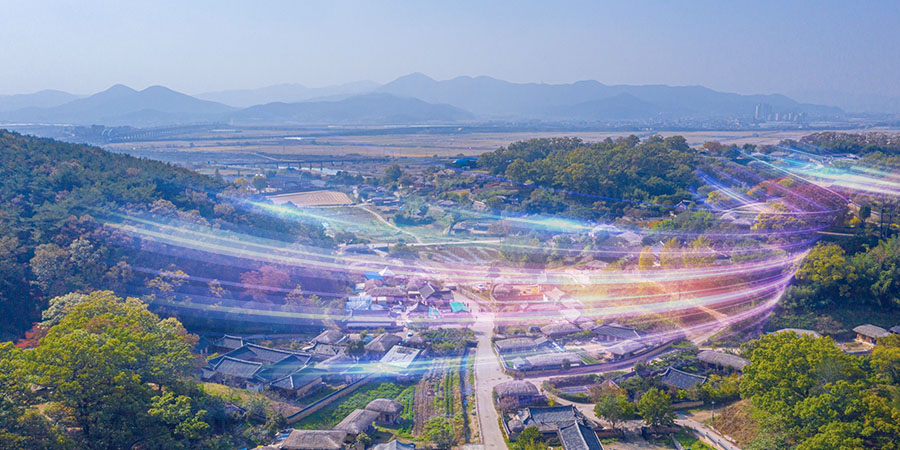Despite several roadblocks at the outset of its implementation in 2022, India’s 5G rollout has so far been notable and smooth. Government efforts such as Digital India, together with the initiative of telcos such as Airtel, Reliance Jio and Vodafone Idea, have contributed to the deployment of 5G in the country. Because of these factors, data consumption and connectivity have exponentially increased across the country.
India’s mobile-first internet has seen enormous development, fueled by low pricing and the simple availability of low-cost 4G devices, and it continues to do so in the 5G era.
According to reports by Counterpoint Research, the Indian government’s initial recommendation was to deploy at least 10,000 5G BTSs (base transceiver stations) every week. By December 2022, the cumulative number of 5G BTSs deployed was around 22,000, with a weekly average of 2,500 5G BTSs. As of March 2023, Jio and Airtel had successfully deployed 116,204 5G BTSs across the country.
A strong infrastructure is also required for the successful introduction of 5G technologies. Telecom businesses must invest in the modernization of their existing networks, which include towers, fiber-optic cables and data centers. India has made great progress in this regard.
India’s telcos have been aggressively striving to extend their infrastructure to handle 5G. They have been using Massive MIMO (Multiple-Input Multiple-Output) technology, increasing the density of their tower networks and investing in fiber-optic connectivity. These initiatives are critical to ensuring that the underlying infrastructure can support 5G networks’ enhanced speed, capacity and latency needs.
In April 2023, Airtel announced that its ultra-fast 5G service is now available to customers in over 3,500 cities and towns in the country. From Katra in Jammu to Kannur in Kerala, Patna in Bihar to Kanyakumari in Tamil Nadu, Itanagar in Arunachal Pradesh to the Union territory of Daman and Diu, all the key urban and rural parts of the country have unlimited access to Airtel 5G Plus service.
Randeep Sekhon, TO, Bharti Airtel, said, “We’re excited to cover large parts of the country with the power of 5G. Bridging every town and key rural areas in India by September 2023 remains our commitment, as we continue to add 30-40 cities/towns every single day. We are witnessing a rapid adoption of 5G amongst customers both in urban and rural India. Airtel 5G Plus will act as the propeller that will power ahead the next generation of digital connectivity, creating new business models and revolutionizes industries such as education, healthcare, manufacturing, etc. all along the way.”
Just this month, Airtel celebrated other milestones, with their subscribers from Mumbai, Tamil Nadu, Andhra Pradesh and Telangana surpassing the 2 million mark.
Commenting on the milestone, Tarun Virmani, CEO Tamil Nadu, Bharti Airtel, said, “We are witnessing a rapid adoption of Airtel 5G Plus in Tamil Nadu. I am thrilled to share that we have surpassed 2 million customers on our ultrafast Airtel 5G network. We will continue to advance our network, bridging every town and key rural area across the state, allowing many more customers to enjoy superfast access to high-definition video streaming, gaming, multiple chatting, instant uploading of photos and more.”
Regarding its coverage, Jio announced in March 2023 that its True 5G services are available in 34 new cities, making the service available in a total of 365 cities across the nation. People and businesses in these cities will have access to the technological benefits of high-speed, low-latency, stand-alone True 5G services, opening new growth opportunities in tourism, manufacturing, SMEs, e-governance, education, healthcare, agriculture, automation, artificial intelligence, gaming and IT.
Benefits of 5G in India
The broad adoption of 5G in India has enormous potential to change numerous areas of the economy. Here are several significant advantages:
- Enhanced Connectivity and Speed
5G networks enable smooth video streaming, ultra-high-definition content consumption and immersive virtual reality experiences due to much quicker data transmission speeds. Individuals and businesses benefit from this level of connectedness, which allows for increased productivity and creativity.
- Internet of Things (IoT) and Smart Cities
5G networks can assist the concept of smart cities by facilitating the spread of IoT devices. The low latency and large capacity of the technology allow for real-time communication between devices, paving the way for smart grids, intelligent transportation systems and efficient public services.
- Industry 4.0 and Manufacturing
5G technology is critical in the era of Industry 4.0, allowing for the seamless integration of automation, robotics and artificial intelligence in industrial processes. 5G enables companies to accomplish real-time monitoring and control, predictive maintenance and effective supply chain management, resulting in greater production, less downtime and improved operational efficiency.
While India is currently in the process of statewide deployment of 5G technology, significant progress has been made in terms of infrastructure construction, among other advances. The deployment of 5G in India has the potential to transform a variety of industries, including healthcare, manufacturing, education and smart cities. It will improve connection and thus enable the Internet of Things, opening new avenues for economic growth and creativity. India is ready to embrace the revolutionary power of 5G and further improve its position in the technology industry.







